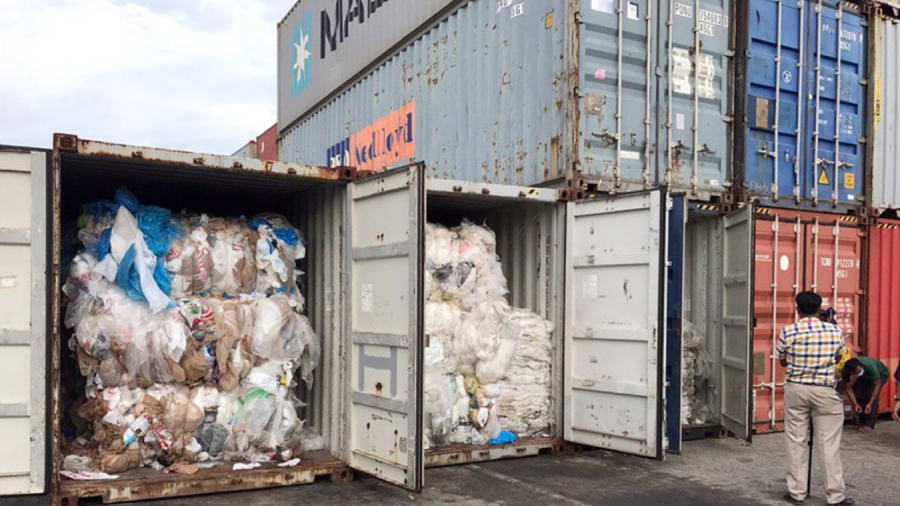PHNOM PENH, Cambodia—Almost seven dozen shipping containers sitting in a Cambodian seaport that were found to be filled with plastic waste came from the United States and Canada, the Southeast Asian country’s Environment Ministry said on Wednesday, July 17.
Ministry spokesman Neth Pheaktra said the total weight of the waste found in 83 containers in Sihanoukville, the country’s main port, was 1,600 tons.
Cambodian officials announced on Wednesday, they are in the process of sending back the 1,600 tonnes of trash back to their source—the U.S. and Canada.
Tuesday’s discovery of the waste followed a statement at a Cabinet meeting last week by Prime Minister Hun Sen that Cambodia is not the dumping ground for any kind of waste, and does not allow the import of any kinds of plastic waste or other recyclables.
#Cambodia to send back 1,600 tonnes of waste to #US, #Canada
1,600 tonnes of plastic waste found in shipping containers will be sent back to its origin, environment ministry spox. Pheaktra said.
”Cambodia is not a bin for out-of-date technology to be dumped in”, he added. pic.twitter.com/V2kJBk5xsR
— EHA News (@eha_news) July 17, 2019
The cross-border disposal of waste became a major regional issue after China, previously its main destination, barred imports of almost all foreign plastic waste early last year. Waste shipments shifted to other countries such as Indonesia, Thailand and Malaysia, which in turn also started rejecting shipments.
Neth Pheaktra said 70 of the containers were shipped from the U.S. and 13 came from Canada. Both countries are major exporters of such waste.
A government committee established to look into the matter will investigate how and why the containers ended up in Cambodia, he said. He added that any company found to be involved in bringing in the waste would be fined and brought to court.
“Cambodia is not a dustbin where foreign countries can dispose of out-of-date e-waste, and the government also opposes any import of plastic waste and lubricants to be recycled in this country,” Neth Pheaktra said.
Electronic waste, which often has toxic qualities, is also a major problem, with shipments bouncing from port to port after being turned away.
Kun Nhim, director-general of Cambodia’s General Department of Customs and Excise, told The Associated Press on Wednesday that action was taken on the issue after other countries in the region such as Malaysia, Indonesia and Philippines brought the issue to the attention of Cambodian officials.
He said the 83 containers, which arrived over a period beginning in October 2018, contained only plastic waste, not toxic materials or radioactive substances.
Cambodia also has a severe problem with plastic waste it generates domestically, with little public awareness of the problem or infrastructure to deal with it.
This is just the latest incident in a global trash crisis, in which electronic waste, plastics, and other trash from mostly Western countries get shipped to Southeast Asia.
Malaysia also sent back 450 tonnes of plastic waste in May to their countries of origin, including the United Kingdom, Canada, the U.S., Japan, and the Netherlands.
“Malaysia will not be a dumping ground to the world.”
Malaysia wants to send back tonnes of plastic waste to countries including the US, UK and Canada. pic.twitter.com/albQu36Yiv
— Al Jazeera English (@AJEnglish) May 31, 2019
As countries bat around each others’ waste, they have also made collaborative efforts to stem the crisis. The governments of 187 countries agreed to control the movement of plastic waste between national borders in May by adding plastic to the Basel Convention, an international regulatory treaty.
The move was “a highly welcome step towards redressing this imbalance and restoring a measure of accountability to the global plastic waste management system,” said the World Wildlife Fund.
By Sopheng Cheang
The CNN Wire contributed to this report.

